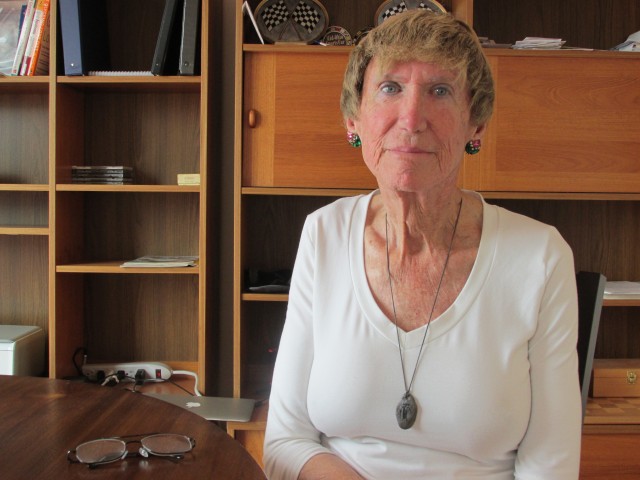
Editor's Note: In the coming years, California's senior population is expected to grow more than twice as fast as the total population. As part of our occasional series on health called Vital Signs, we're spending the month focusing on older adults. Today we meet 76-year-old Pamela Howland. When she retired, Howland decided she could finally live as a woman after spending her entire life as a man. But being a transgender senior has come with many challenges, including discrimination, even in health care settings..
By Pamela Howland
I had decided that the years I had left, I wanted to live the way I wanted to live. It was a shame that I had to make the change because it would have been so much easier to continue living as a male rather than encounter the difficulties of living as a transgender female that doesn't pass as female.
I had been in Arizona about two years, when I had a [abdominal] surgery and the surgery damaged a very key nerve in controlling my gastrointestinal system.
I spent on and off three months in the hospital, and I had some very, very terrible treatment both by nurses and doctors.